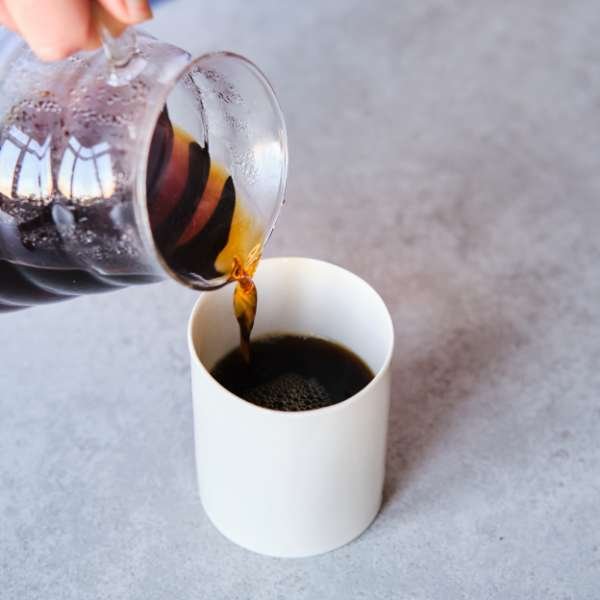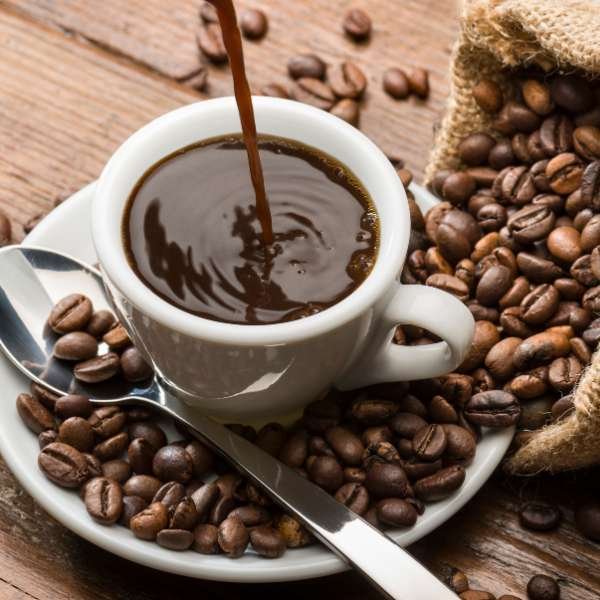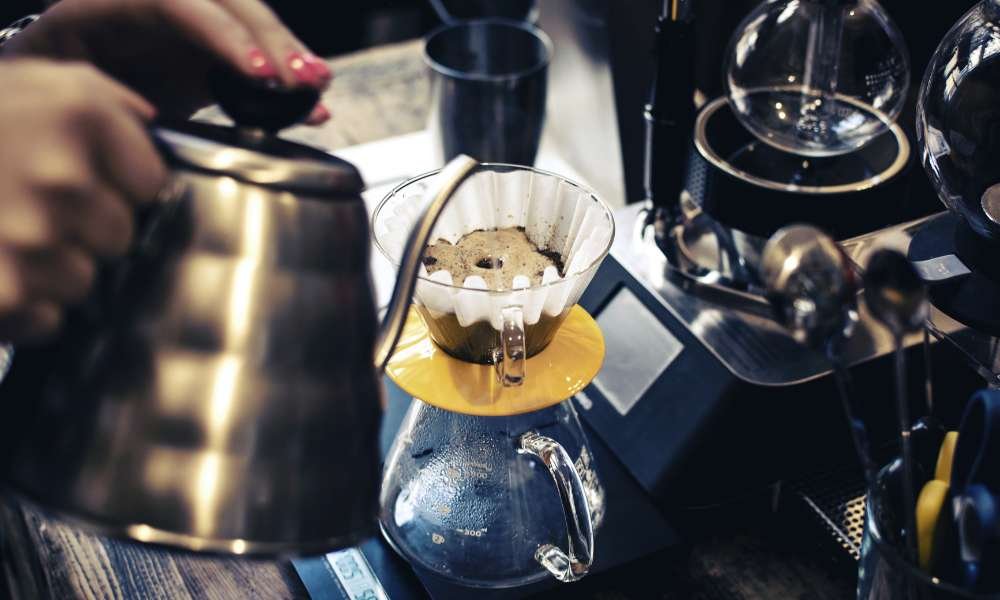A bitter cup of coffee can ruin your morning, but achieving a smooth and balanced brew is simpler than you think. With the right tweaks to your brewing process—like adjusting the grind size, water temperature, and brewing time—you can make coffee not bitter and unlock its full, rich flavor. Whether you’re a casual drinker or a seasoned coffee enthusiast, these small changes can transform your daily cup into a perfectly enjoyable experience.
Selecting the Right Coffee Beans

The journey to a smoother cup begins with choosing the right beans. Not all beans are created equal, and their variety can significantly impact the final taste of your brew.
The Role of Bean Variety in Flavor
Beans come primarily from two species: one known for complex flavors that range from fruity to floral, and another for its stronger, more bitter notes, partly due to its higher content of natural stimulants. For a smoother cup, opting for high-quality beans of the less bitter variety is a smart choice.
Freshness Matters: Opting for Freshly Roasted Beans
Freshness is another key factor. Beans begin to lose their flavor soon after roasting. Freshly roasted beans retain their natural oils and compounds, which contribute to a richer, more nuanced flavor profile. Using beans roasted within the last two weeks ensures your drink is as flavorful and as little bitter as possible.
Proper Coffee Storage

Even the finest beans can turn bitter if not stored properly. The way you store them can profoundly impact the taste, with improper storage leading to staleness and increased bitterness.
How to Store Beans to Prevent Bitterness
Beans are vulnerable to light, air, moisture, and heat. To preserve their freshness, store them in an airtight container, away from direct sunlight, in a cool, dry place. Avoid keeping them in the refrigerator or freezer, as fluctuating temperatures can introduce moisture and cause staleness.
Grinding Techniques for a Smoother Brew

The grind size of your coffee is one of the most critical variables in determining the taste of your brew. It directly affects the extraction process, influencing whether your coffee is balanced or bitter.
Finding the Right Grind Size for Your Brewing Method
Various brewing methods call for specific grind sizes to ensure optimal results.. For example, a coarse grind is ideal for a French press, as it allows for a slower extraction, resulting in a smoother, less bitter brew. On the other hand, a fine grind is necessary for espresso, where a quick extraction time is essential. Matching the grind size to your brewing method is crucial for reducing bitterness.
Avoiding Over-Grinding: How It Can Lead to Bitterness
Over-grinding your coffee can lead to over-extraction, which is one of the main causes of bitterness. When coffee grounds are too fine, they extract more quickly and release more bitter compounds. To avoid this, use the appropriate grind size for your brewing method and ensure that your grinder is set correctly.
Water Quality and Temperature

Water, often overlooked, plays a critical role in your brew. The quality and temperature of the water used can significantly affect the taste of your drink, including its harshness.
Why Water Quality Can Make or Break Your Drink
Since water makes up the majority of your drink, its quality is essential. Tap water with high levels of minerals can lead to over-extraction, resulting in a bitter taste. Using filtered water helps remove impurities while retaining essential minerals, producing a more balanced cup.
The Ideal Water Temperature
The temperature of the water used in preparation is crucial. Water that’s too hot (above 205°F) can scorch the grounds, leading to a bitter brew. Conversely, water that’s too cool can under-extract, producing a weak, sour flavor. The ideal temperature range is between 195°F and 205°F, ensuring maximum flavor extraction while minimizing bitterness.
Brewing Methods That Reduce Bitterness

Different brewing methods can yield vastly different results in terms of flavor and bitterness. Understanding which methods are more likely to produce a smooth, less bitter cup can guide your brewing choices.
How to Make Coffee Not Bitter with a French Press
The French press is a popular brewing method that, when done correctly, can produce a rich and smooth cup of coffee. By using a coarse grind and a brewing time of about four minutes, you can avoid over-extraction and minimize bitterness. The key is to press the plunger slowly and evenly to separate the grounds from the liquid without disturbing the coffee too much.
Using a Pour-Over Method for a Smoother Taste
The pour-over method allows for greater control over the brewing process, which can help reduce bitterness. By pouring hot water over the coffee grounds in a slow, circular motion, you can ensure even extraction. The result is a clean, bright cup with minimal bitterness.
Why Espresso Is Less Bitter with the Right Technique
Espresso, when brewed correctly, can be a concentrated, flavorful shot of coffee with balanced acidity and minimal bitterness. The key is to use the right grind size, tamp pressure, and brewing time. A fine grind, combined with a brewing time of about 25-30 seconds, will produce a shot that highlights the coffee’s natural sweetness and complexity, rather than its bitterness.
The Role of Brewing Time

Brewing time is a critical factor that can significantly influence the taste of your coffee. Too much time can lead to over-extraction and bitterness, while too little time can result in under-extraction and sourness.
How Over-Extraction Leads to Bitter Coffee
Over-extraction occurs when water is in contact with coffee grounds for too long, pulling out undesirable bitter compounds. This can happen with any brewing method if the grind size is too fine, the water temperature is too high, or the brewing time is too long. The key to avoiding over-extraction is to monitor these variables carefully and adjust as needed.
Finding the Sweet Spot: Ideal Brewing Times for Different Methods
Each brewing method has an optimal brewing time that balances flavor extraction with bitterness. For example, drip coffee typically takes about 4-5 minutes, while espresso is much quicker at around 25-30 seconds. Finding the sweet spot for your chosen method requires a bit of experimentation, but the reward is a perfectly balanced cup of brew.
Experimenting with Additives

While some might prefer their drink unaltered, adding certain ingredients can help reduce bitterness and enhance flavor. These additions can balance the natural sharpness of the brew.
Adding a Pinch of Salt: A Surprising Way to Reduce Bitterness
One unconventional yet effective method to reduce harshness is to add a small pinch of salt. Salt can neutralize some bitter compounds and bring out the natural sweetness of the drink. This trick works particularly well with darker roasts or over-extracted brews.
Why Sweeteners and Dairy Can Help Balance Bitter Flavors
Adding sweeteners or dairy not only softens the flavor but can also balance out any bitter edge. Sweeteners mask the harsh taste, while dairy adds a creamy texture that mellows the overall experience. These additions can transform a harsh cup into a comforting, enjoyable drink.
Cleaning Your Coffee Equipment

Clean equipment is essential for making coffee that is not bitter. Coffee oils and residues can build up over time, leading to rancid flavors and increased bitterness.
The Impact of Dirty Equipment on Coffee Taste
Dirty equipment can harbor old coffee oils and grounds, which can contribute to a bitter, off-tasting brew. These residues can also interfere with the extraction process, leading to inconsistent results. Consistent cleaning is crucial for preserving the quality of your brew.
How to Properly Clean Coffee Makers, Grinders, and More
To properly clean your brew equipment, use a combination of water, mild detergent, and, occasionally, a descaling solution for coffee makers. Grinders should be cleaned regularly by disassembling and brushing out any coffee particles. By keeping your equipment clean, you ensure that your coffee tastes fresh and free of bitterness.
The Science Behind Coffee Bitterness

Understanding the science behind coffee bitterness can help you make more informed decisions about how to brew your brew.
Understanding the Chemical Compounds that Cause Bitterness
Coffee bitterness is primarily caused by chemical compounds such as caffeine, quinic acid, and chlorogenic acids. These compounds are more prevalent in dark roasted coffee and can be released in higher concentrations during over-extraction. By understanding these compounds, you can better control their presence in your brew.
How Roasting Levels Affect Coffee Bitterness
Roasting levels have a significant impact on brew’s bitterness. Darker roasts tend to have more pronounced bitterness due to the breakdown of chlorogenic acids into quinic acid. Lighter roasts, while more acidic, generally have less bitterness and more complex flavors. Choosing a roast level that suits your taste preferences can help you avoid unwanted bitterness.
Adjusting Your Brew Based on Coffee Origin

The origin of your coffee beans plays a crucial role in the flavor profile and bitterness of your brew.
How Coffee Origin Impacts Flavor and Bitterness
Coffee beans from different regions have distinct flavor profiles influenced by the local climate, soil, and growing practices. For example, beans from Ethiopia are known for their fruity and floral notes, while those from Brazil tend to be more chocolatey and nutty. Understanding these regional differences can help you select beans that are less likely to produce a bitter cup.
Choosing Beans from Regions Known for Less Bitter Coffee
To avoid bitterness, consider selecting beans from regions known for producing milder, less bitter brew. Ethiopian and Colombian coffees are often praised for their bright, fruity flavors and low bitterness. By experimenting with beans from different origins, you can discover new flavors and reduce bitterness in your brew.
Avoiding Common Brewing Mistakes

Even with the best beans and equipment, certain common mistakes can lead to a bitter cup of brew
The Top Mistakes That Lead to Bitter Coffee
Some of the most common mistakes that lead to bitter coffee include using water that’s too hot, over-extracting the brew, or using stale beans. These errors can be easily avoided by following the guidelines mentioned earlier, such as using the correct water temperature, brewing time, and fresh beans.
How to Troubleshoot Bitter Coffee at Home
If you find that your brew is consistently bitter, try troubleshooting by adjusting one variable at a time. Start by checking the water temperature, then consider the grind size and brewing time. By making small adjustments, you can identify the cause of the bitterness and take steps to correct it.
Customizing Your Coffee for Personal Taste

To make coffee from chicory, start by choosing the right balance between coffee grounds and chicory root. Chicory offers a unique flavor—earthy, slightly sweet, and somewhat nutty—that can complement your coffee beautifully. Begin with a 70% coffee and 30% chicory mix, adjusting according to your preference. If you enjoy a richer, more robust flavor, you can increase the chicory ratio. For a milder taste, decrease it. Boil water, add your mix to a French press or coffee maker, and brew as usual. Chicory’s versatility allows you to customize your brew, giving you a personalized coffee experience that’s both flavorful and unique.
Experimenting with Brewing Variables for a Perfect Cup
Don’t be afraid to experiment with different brewing variables, such as grind size, water temperature, and brewing time. These adjustments can help you fine-tune your brew to match your personal taste preferences, reducing bitterness and enhancing flavor.
How to Make Coffee Not Bitter Based on Your Preferences
You prefer a less bitter brew, focus on using lighter roasts, adjusting your brewing time, and experimenting with additives like milk or sugar. For those who enjoy a stronger, more bitter flavor, darker roasts and shorter brewing times may be more appealing. The secret lies in experimenting to discover the combination that suits you best.
Going Beyond the Cup: Pairing Coffee with Food

The foods you pair with your brew can also impact how you perceive its bitterness. Some foods can enhance the coffee’s natural sweetness, while others can accentuate its bitterness.
How Food Pairings Can Enhance or Diminish Coffee Bitterness
Pairing your brew with sweet or creamy foods can help to balance out any bitterness. For example, pastries or chocolate can complement the coffee’s flavors and reduce its bitter edge. On the other hand, pairing brew with savory or acidic foods can sometimes enhance bitterness, so choose your pairings wisely.
What Foods to Avoid to Keep Your Coffee Tasting Smooth
To keep your coffee tasting smooth, avoid pairing it with foods that are overly acidic or spicy, as these can clash with the brew ‘s flavors and make it taste more bitter. Instead, opt for foods that are rich and sweet, such as cakes, cookies, or cream-based dishes.
Tips for Cold Brew Lovers

Cold brew coffee, with its smooth and mellow flavor, is a popular choice for those looking to avoid bitterness. However, there are still some tips to keep in mind to ensure your cold brew is as smooth as possible.
How to Make a Less Bitter Cold Brew at Home
To make a less bitter cold brew, use a coarse grind and steep the brew in cold water for 12 to 24 hours. The slow extraction process and lower temperature reduce the release of bitter compounds, resulting in a smoother, less acidic brew.
Why Cold Brew Is Naturally Less Bitter: The Science Explained
Cold brew coffee is naturally less bitter because the cold water extraction process is slower and gentler, which means fewer bitter compounds are released. This makes cold brew an excellent choice for those who prefer a smoother, less acidic cup of brew.
Sustainable Practices for Better Coffee

Sustainability in brew production not only benefits the environment but can also lead to better-tasting, less bitter brew.
How Sustainable Farming Can Lead to Less Bitter Coffee Beans
Sustainable farming practices, such as organic farming and shade-grown brew, often result in higher quality beans with more complex flavors and less bitterness. These methods focus on maintaining healthy soil and ecosystems, which in turn produce better-tasting brew.
Why Supporting Ethical Coffee Brands Can Improve Your Brew
Supporting ethical brew brands that prioritize sustainability and fair trade can also improve the quality of your brew. These companies often invest in better farming practices and pay fair wages to farmers, leading to higher quality, less bitter brew.
The Importance of Patience and Practice

Mastering the art of brewing the perfect cup of brewtakes patience and practice. Don’t get discouraged if your initial attempts aren’t flawless.
How Trial and Error Helps You Achieve a Perfect, Non-Bitter Coffee
Trial and error are part of the learning process when it comes to coffee brewing. Each attempt teaches you something new about how to improve your brew and reduce bitterness. With time and practice, you’ll develop a deeper understanding of how different variables affect your brew.
Encouraging Experimentation: Making Coffee Your Own
Don’t be afraid to experiment with different brewing methods, bean varieties, and additives. Brew is a deeply personal experience, and finding the perfect cup for you is worth the effort. Embrace the journey and enjoy the process of making brew your own.
Conclusion
Creating a smooth and enjoyable cup begins with selecting high-quality, freshly ground beans, adjusting the grind duration, and controlling the water temperature. Avoid over-extraction by brewing for the appropriate amount of time, and consider adding milk, cream, or sugar to soften the flavor. Cold brewing and selecting beans with lower acidity can also help reduce bitterness, resulting in a more balanced, flavorful drink.ins with selecting high-quality, freshly ground beans, adjusting the grind duration, and controlling the water temperature. Avoid over-extraction by brewing for the appropriate amount of time, and consider adding milk, cream, or sugar to soften the flavor. Cold brewing and selecting beans with lower acidity can also help reduce bitterness, resulting in a more balanced, flavorful drink.

